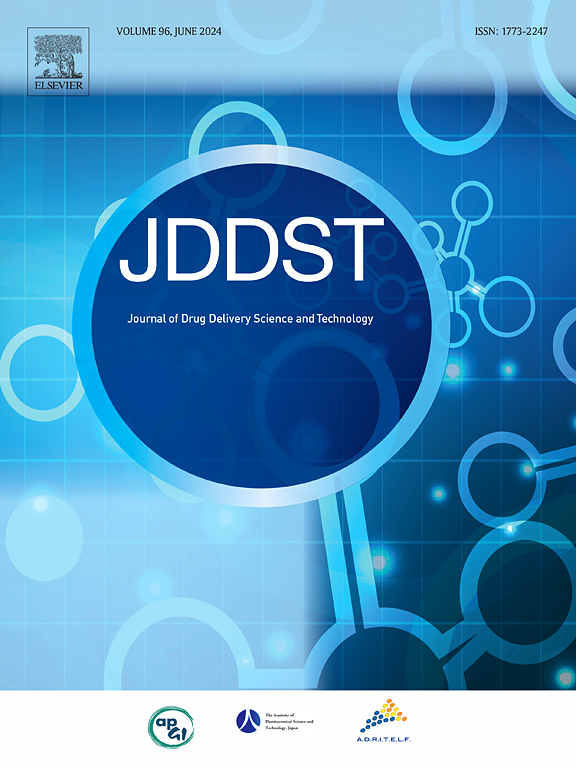Liposomes as immunotherapeutic carriers: A game-changer in cancer therapy
IF 4.5
3区 医学
Q1 PHARMACOLOGY & PHARMACY
Journal of Drug Delivery Science and Technology
Pub Date : 2025-03-22
DOI:10.1016/j.jddst.2025.106847
引用次数: 0
Abstract
Cancer immunotherapy has emerged as a breakthrough treatment for cancer; however, it comes with limitations, such as systemic toxicity and off-target effects. In the ever-evolving landscape of cancer treatment, nanotechnology has provided significant advancements, with liposomes being one of its prominent tools. This article first outlines the fundamental principles of cancer immunotherapy and the complexities of the TME, emphasizing the dynamic interplay between pro- and anti-tumor immune cells. We briefly discuss the well-established use of liposomes in cancer immunotherapy, including their role in encapsulating immunostimulatory agents such as Stimulator of Interferon Genes (STING) agonists, Toll-like receptor (TLR) agonists, and immune checkpoint inhibitors. The article then delves into recent advances in liposome engineering, highlighting functionalization with targeting moieties explicitly targeting cancer and tumor-associated immune cells. Furthermore, we explore cutting-edge innovations, including the hybridization of liposomes with cancer cell membranes, red blood cells, and exosomes, along with the application of liposomes in bacteria- and oncolytic virus-mediated therapies. Subsequently, we examine the integration of liposomes with T-cell therapies. We then explore the use of liposomes in both solid and hematologic cancers, followed by a review of the current clinical applications of liposomal formulations in cancer immunotherapy. Our goal is to pave the way for more effective and personalized cancer treatments than ever before.

求助全文
约1分钟内获得全文
求助全文
来源期刊
CiteScore
8.00
自引率
8.00%
发文量
879
审稿时长
94 days
期刊介绍:
The Journal of Drug Delivery Science and Technology is an international journal devoted to drug delivery and pharmaceutical technology. The journal covers all innovative aspects of all pharmaceutical dosage forms and the most advanced research on controlled release, bioavailability and drug absorption, nanomedicines, gene delivery, tissue engineering, etc. Hot topics, related to manufacturing processes and quality control, are also welcomed.

 求助内容:
求助内容: 应助结果提醒方式:
应助结果提醒方式:


